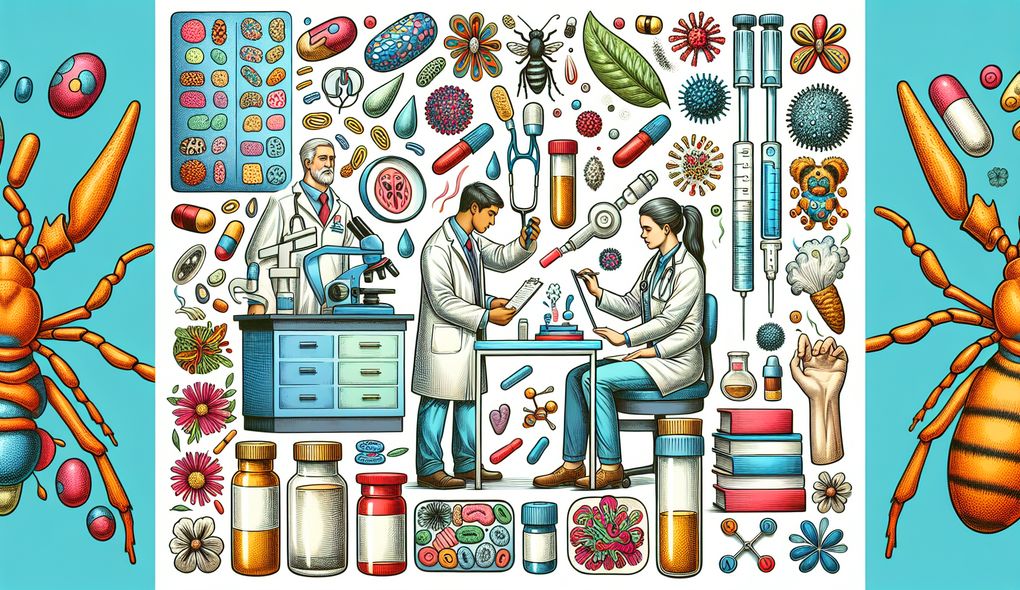What steps do you take to ensure the safety and accuracy of allergy testing procedures?
SENIOR LEVEL

Sample answer to the question:
To ensure the safety and accuracy of allergy testing procedures, I follow a systematic approach. First, I review the patient's medical history and symptoms to determine the appropriate tests to conduct. Then, I carefully explain the procedure to the patient and address any concerns they may have. During the test, I ensure that all equipment and materials are sterile and properly calibrated. I follow established protocols and guidelines to perform the test accurately. After the test, I meticulously analyze the results and cross-reference them with the patient's history and symptoms. I collaborate with other healthcare professionals to validate the findings and develop a personalized treatment plan. Finally, I educate the patient on their allergies, triggers, and management strategies to ensure their safety and well-being.
Here is a more solid answer:
Ensuring the safety and accuracy of allergy testing procedures requires a combination of knowledge, skills, and collaboration. Firstly, I thoroughly assess the patient's medical history, symptoms, and potential triggers in order to choose the appropriate tests to conduct. Throughout the testing process, I adhere to strict protocols and guidelines to minimize the risk of errors and cross-contamination. I carefully explain the procedure to the patient, addressing any concerns and ensuring their comfort. To accurately interpret the test results, I utilize my expertise in allergic and immunologic diseases, considering the patient's history and clinical presentation. Additionally, I collaborate closely with other healthcare providers, such as laboratory technicians and nurses, to validate the findings and ensure consistent communication. By working together, we develop personalized treatment plans and educate the patient on their allergies, triggers, and management strategies. Moreover, I prioritize continuous education by staying up-to-date with the latest research and advancements in the field, ensuring that I provide the most accurate and effective care.
Why is this a more solid answer?
The solid answer expands on the basic answer by providing more specific details on the steps taken to ensure safety and accuracy. It emphasizes the importance of knowledge in allergic and immunologic diseases, adherence to protocols, and collaboration with other healthcare providers. However, it could further improve by including examples of clinical decision-making and specific details on continued education.
An example of a exceptional answer:
Ensuring the safety and accuracy of allergy testing procedures is a top priority in my practice. I begin by thoroughly reviewing the patient's medical history, including previous allergic reactions, current symptoms, and any relevant comorbidities. This comprehensive evaluation allows me to develop a targeted testing plan that considers the patient's unique situation. When performing the tests, I utilize advanced equipment that is regularly calibrated and maintained to ensure accurate results. Sterilization protocols are strictly followed to prevent cross-contamination and minimize the risk of infection. To enhance diagnostic accuracy, I employ a multidisciplinary approach by collaborating with other specialists, such as dermatologists or pulmonologists, to assess complex cases and obtain additional insights. Additionally, I stay updated on the latest research and advancements in allergy and immunology through active participation in conferences, webinars, and reading scholarly articles. This continuous education helps me adapt my practice to the evolving field and provide evidence-based care. Overall, my commitment to safety, accuracy, and ongoing education allows me to deliver the highest standard of care to my patients.
Why is this an exceptional answer?
The exceptional answer goes above and beyond by providing specific details on the comprehensive evaluation process, utilization of advanced equipment, and collaboration with other specialists. It also emphasizes the importance of continuous education and its impact on providing evidence-based care. The answer showcases a deep understanding of the job requirements and the candidate's commitment to excellence. It could further enhance by providing specific examples of collaborating with other specialists and mentioning any research contributions.
How to prepare for this question:
- Familiarize yourself with different allergy testing procedures and their indications.
- Stay updated on the latest research and advancements in the field of allergy and immunology.
- Practice explaining complex medical procedures to patients in simple terms.
- Reflect on your experience collaborating with other healthcare professionals in diagnosing and managing allergic conditions.
- Be prepared to provide examples of how you have incorporated continuous education into your practice.
What are interviewers evaluating with this question?
- Knowledge of allergic and immunologic diseases
- Diagnostic and clinical decision-making skills
- Ability to conduct and interpret complex allergy tests
- Communication skills
- Dedication to continued education
- Collaboration with other healthcare providers

